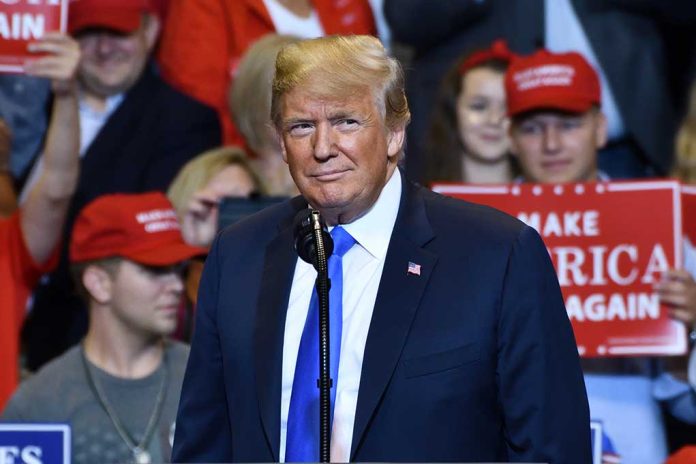
President Trump dismantles the National Security Council, placing 100+ staffers on leave as he wages war against the “deep state” bureaucracy that previously undermined his America First agenda.
Key Takeaways
- Trump has drastically reduced the NSC staff, with over 100 employees placed on administrative leave and plans to potentially shrink the council to just 60 members.
- Secretary of State Marco Rubio is currently serving as interim National Security Adviser, consolidating foreign policy leadership.
- The reorganization aims to prevent career bureaucrats from obstructing Trump’s agenda, particularly in light of the State Department’s overwhelming Democratic Party allegiance (93% of political donations).
- Former NSC officials recommend increasing the council’s budget to hire more presidential appointees directly, rather than relying on potentially disloyal detailees from other agencies.
Streamlining National Security Operations
The Trump administration has initiated a sweeping overhaul of the National Security Council, drastically reducing its size as part of a broader strategy to enhance White House control over foreign policy development. This bold restructuring places over 100 NSC staffers—including both career employees and political appointees—on administrative leave, signaling the President’s determination to ensure loyalty within his national security apparatus. The reorganization represents a significant shift from the traditional NSC model, which has grown considerably in size and scope under previous administrations.
“The National Security Council has been consolidated to facilitate more streamlined processes and greater coordination between the White House and the federal agencies,” said Anna Kelly, White House spokeswoman.
Secretary of State Marco Rubio has emerged as a central figure in this transition, currently serving in the dual capacity of Secretary of State and acting National Security Adviser. His frequent presence in the West Wing demonstrates the increased collaboration between the State Department and what remains of the NSC. This arrangement allows for more direct presidential oversight of foreign policy decisions while President Trump evaluates candidates for a permanent National Security Adviser appointment within the next six months.
Combating Deep State Resistance
At the heart of the NSC restructuring lies President Trump’s determination to neutralize what he views as “deep state” resistance to his America First agenda. During Trump’s first term, the NSC became notorious as a source of leaks and obstruction, with career bureaucrats actively undermining presidential directives. The current reorganization directly addresses this problem by reducing the council’s size and influence, shifting greater responsibility to the State Department where Secretary Rubio can maintain tighter control over policy implementation.
“The president is entitled to—and must have—a loyal team to implement his policies and execute his orders, and this includes his National Security Council staff, which has historically been employed to coordinate across the government, but has not always demonstrated loyalty to the president,” stated Robert Greenway.
However, this strategy is not without risks. Some former NSC employees have expressed concern that disempowering the council could inadvertently increase the authority of potentially hostile bureaucrats within the State Department itself. This concern is particularly relevant given that during the 2019-2020 election cycle, a staggering 93% of political contributions from State Department employees went to Democratic candidates or committees, indicating a significant political bias within the institution now tasked with greater foreign policy responsibilities.
Strategic Restructuring for Presidential Control
Former National Security Adviser Robert O’Brien has suggested that the NSC staff could be reduced to approximately 60 people, a dramatic decrease from its previous size. This downsizing aligns with the White House’s stated goal of creating a more nimble and efficient organization capable of better coordination with federal agencies. The reform also addresses the NSC’s evolution from its original purpose as a coordinating body to its more recent role as an independent policymaking entity that often operated beyond presidential control.
“We have a lot of people that want the job, I can tell you. I mean, a lot of people say it really works with what [Secretary of State Marco Rubio’s] doing. But we have a lot of people. I’m going to be naming somebody,” said President Donald Trump.
To address concerns about insufficient staffing, former NSC personnel have proposed increasing the council’s budget to allow for direct hiring of loyal staff members rather than relying on detailees from other agencies. This approach would enable the President to build a team firmly committed to implementing his foreign policy vision without interference from career bureaucrats with potentially conflicting agendas. As Trump continues to reshape the national security apparatus, these strategic adjustments aim to ensure that his America First policies receive the loyal implementation they deserve from those entrusted with safeguarding the nation’s security interests.



